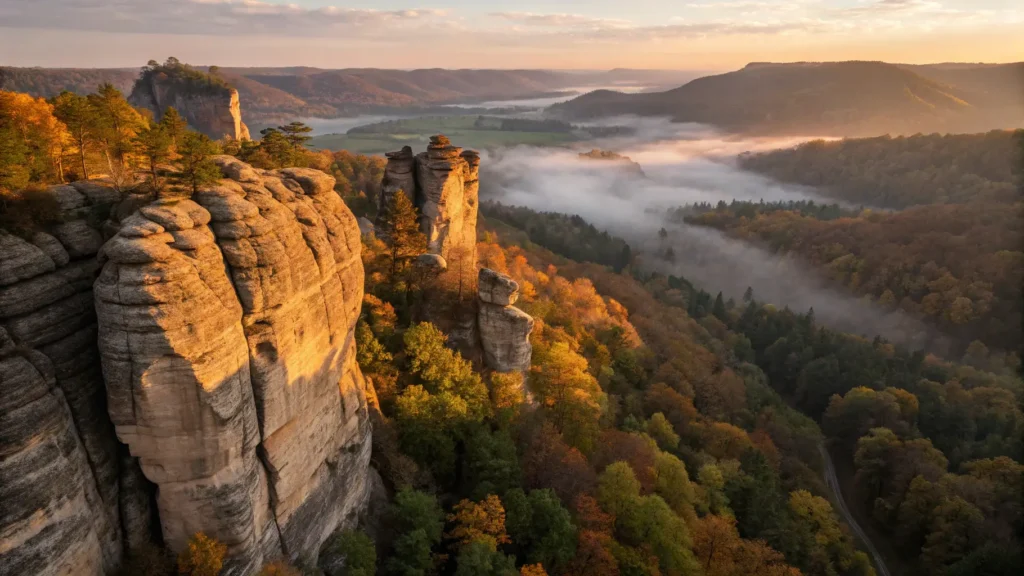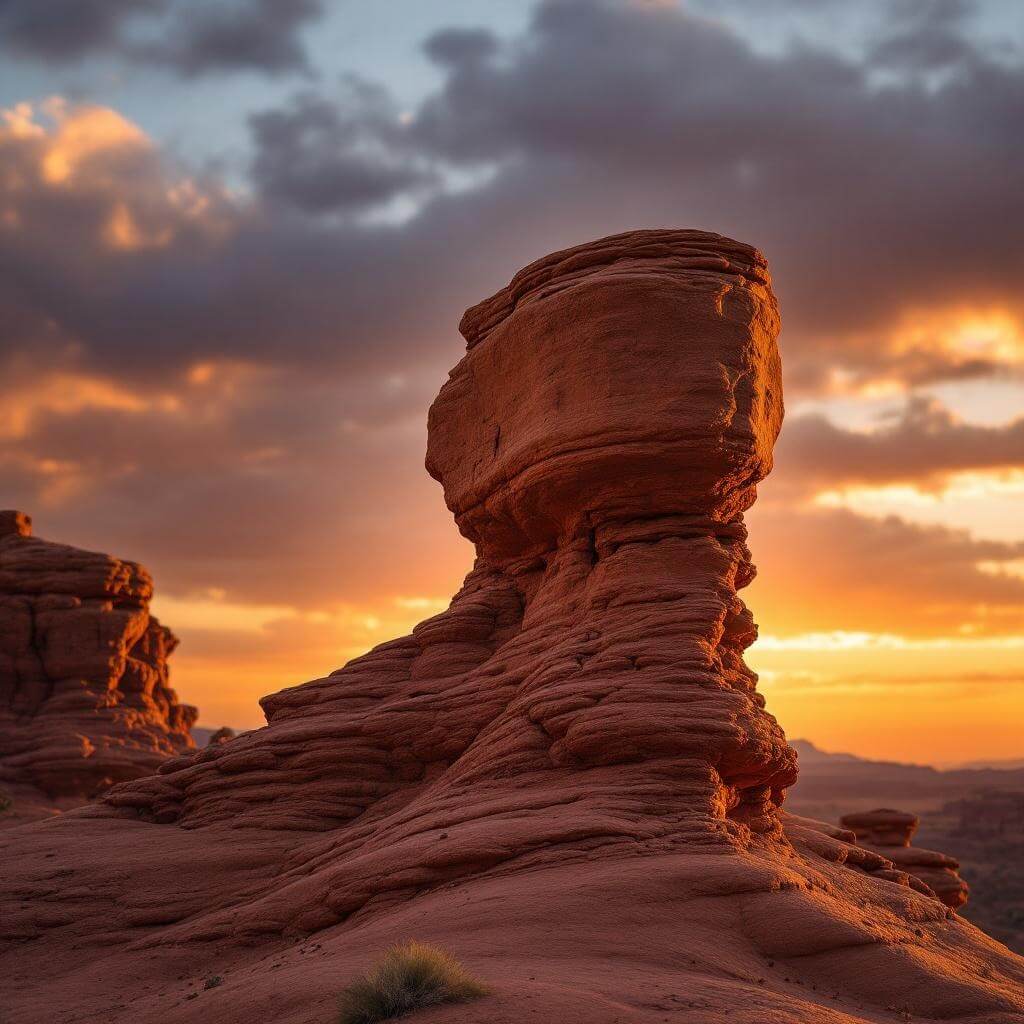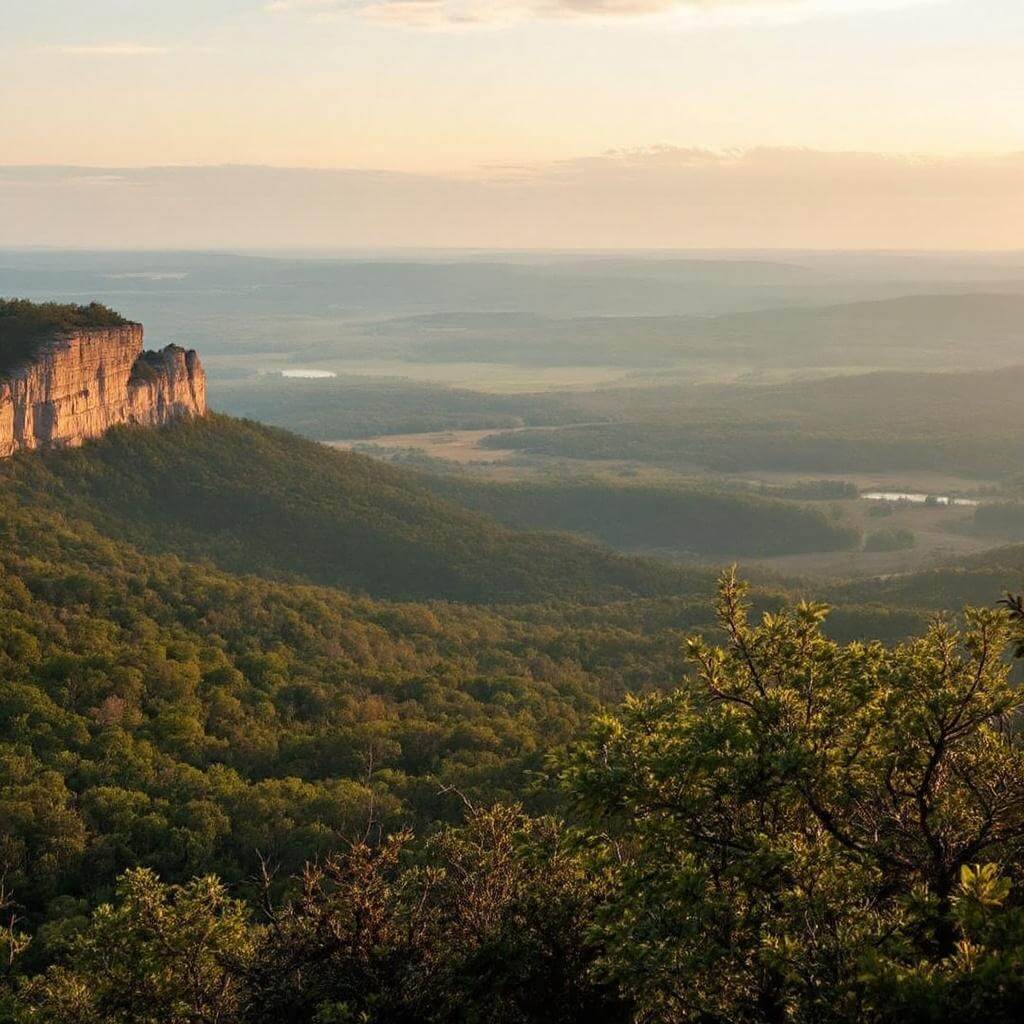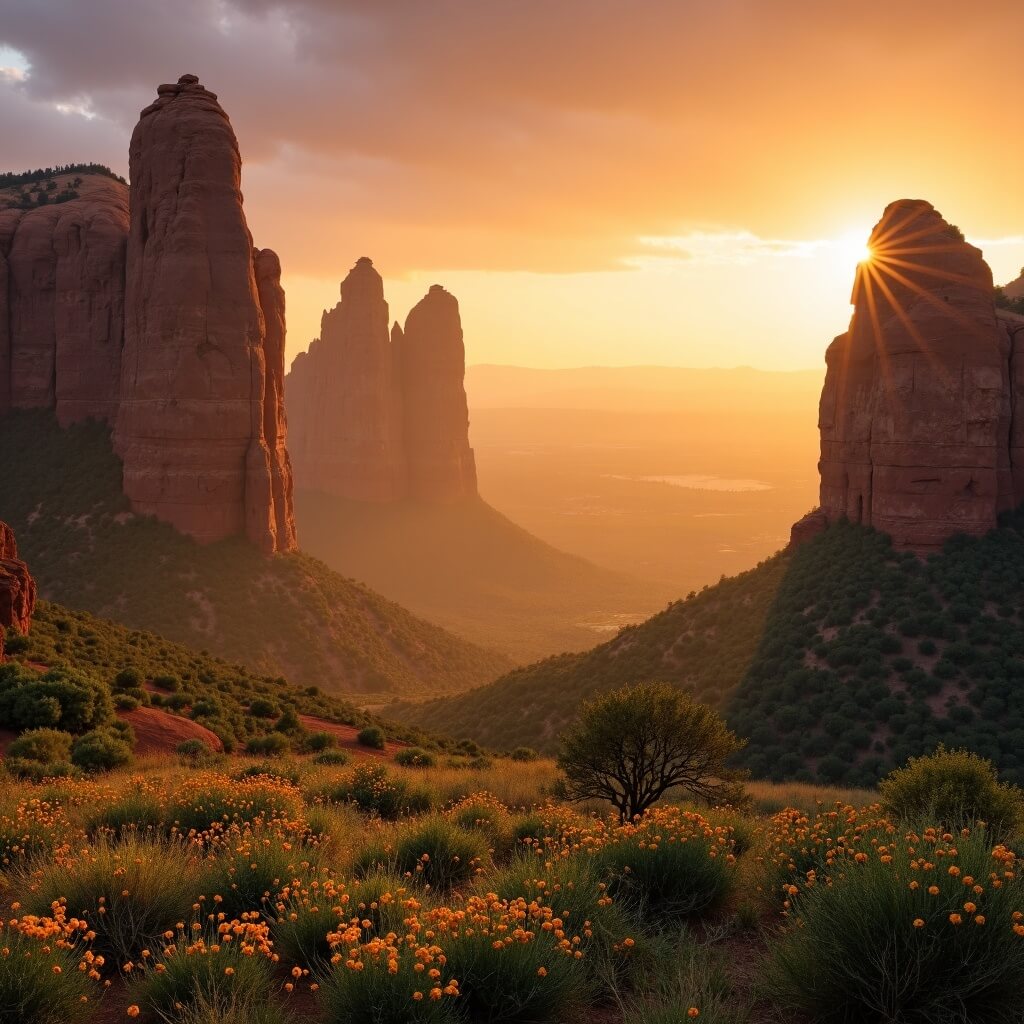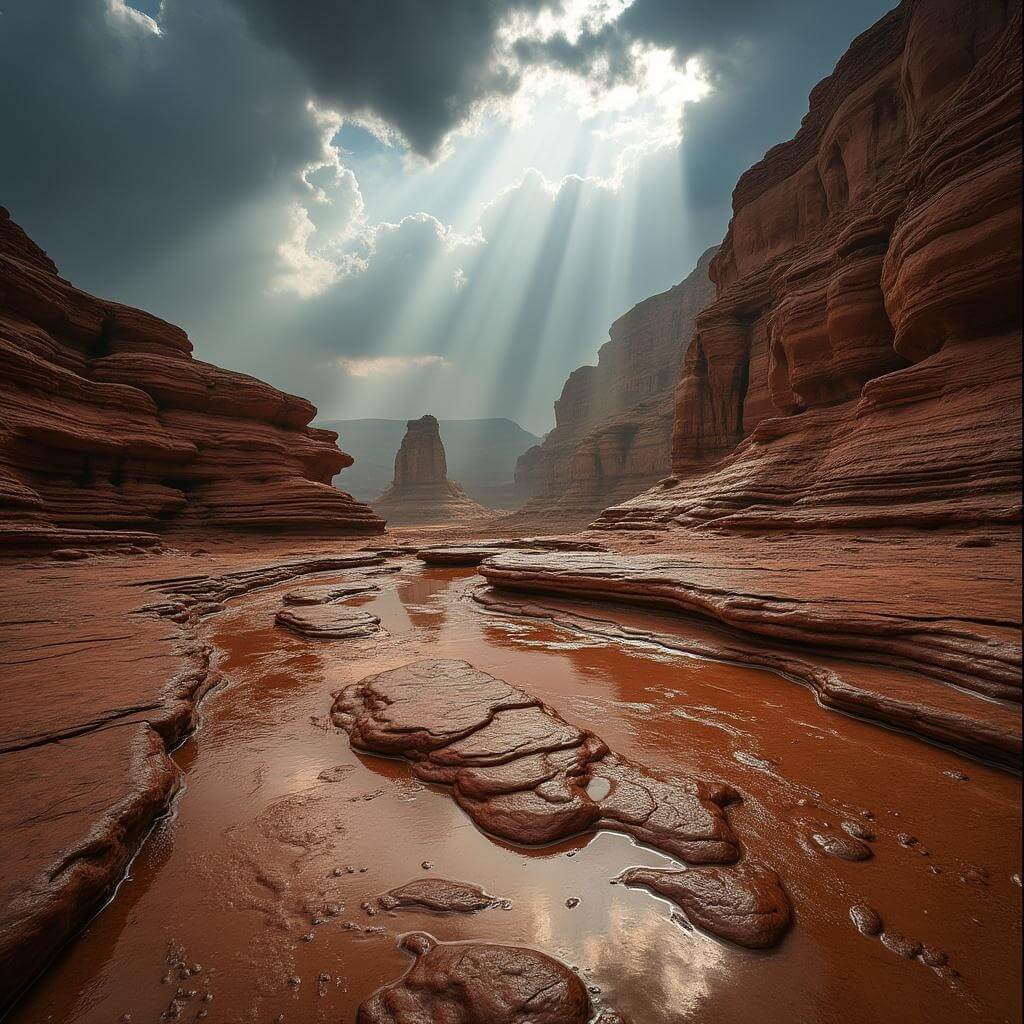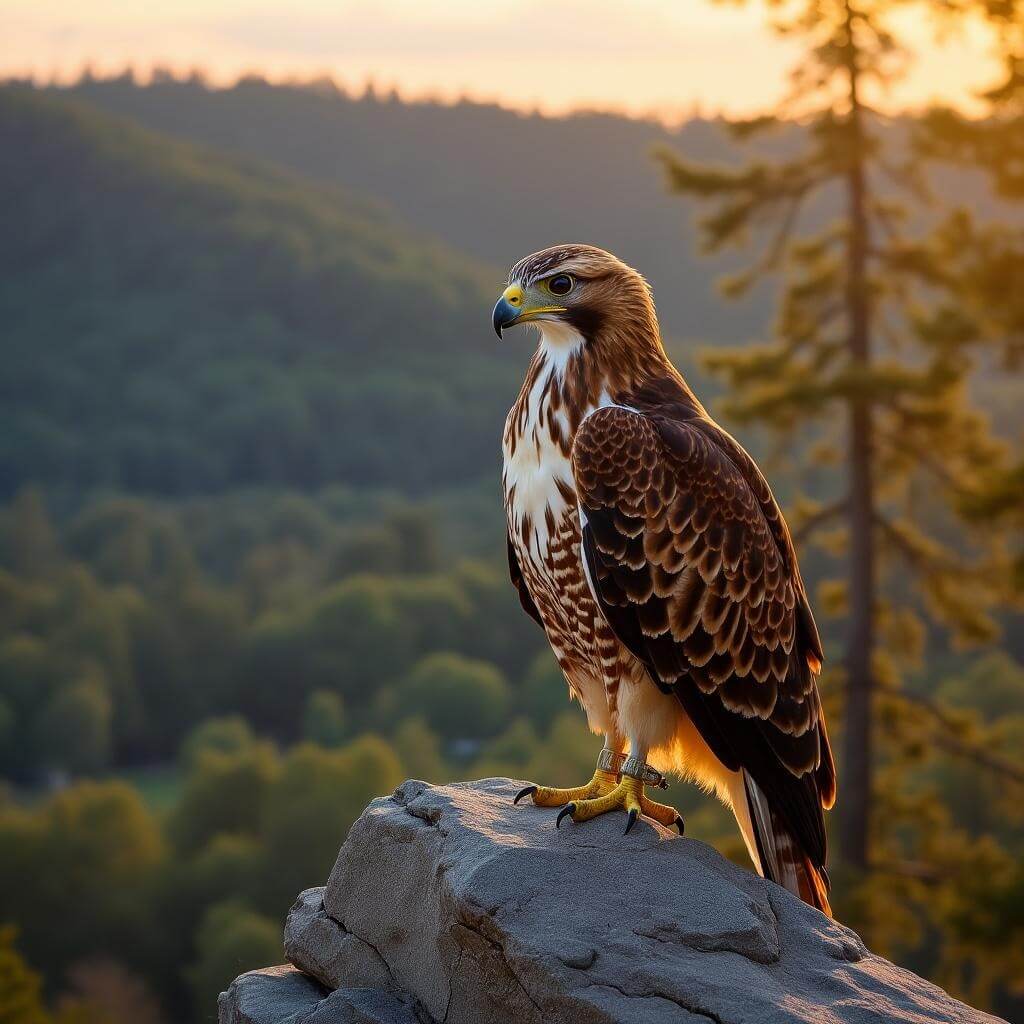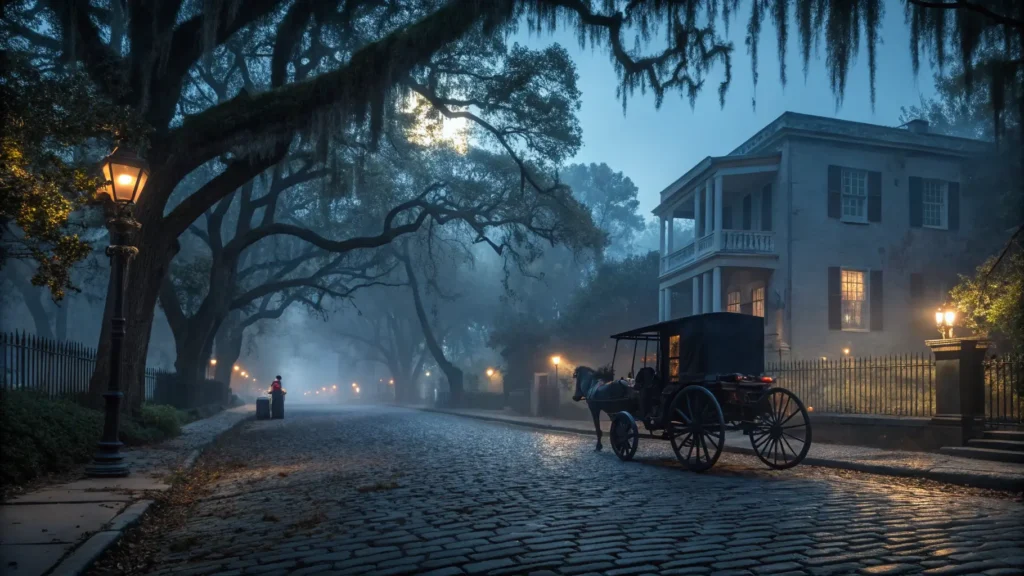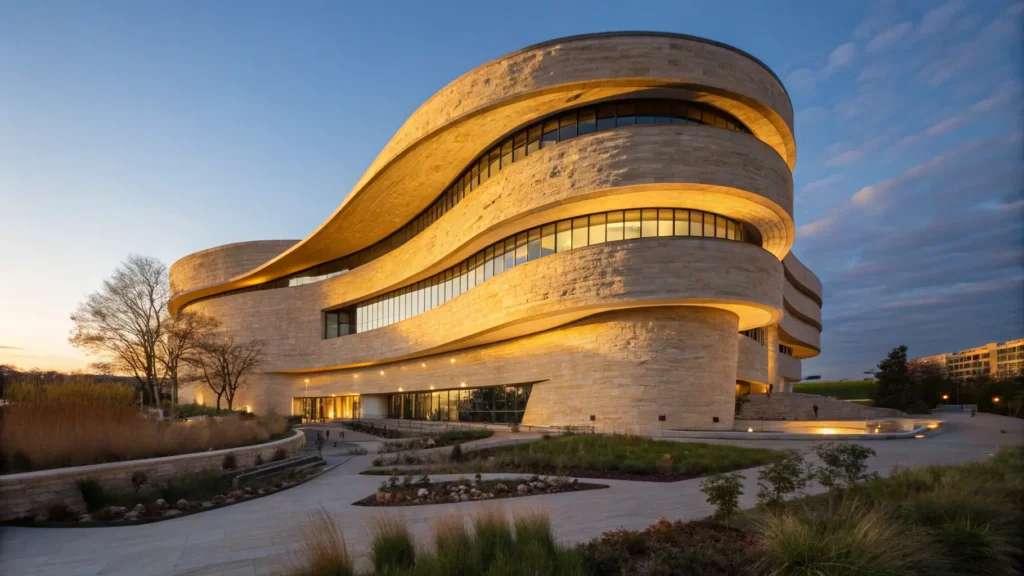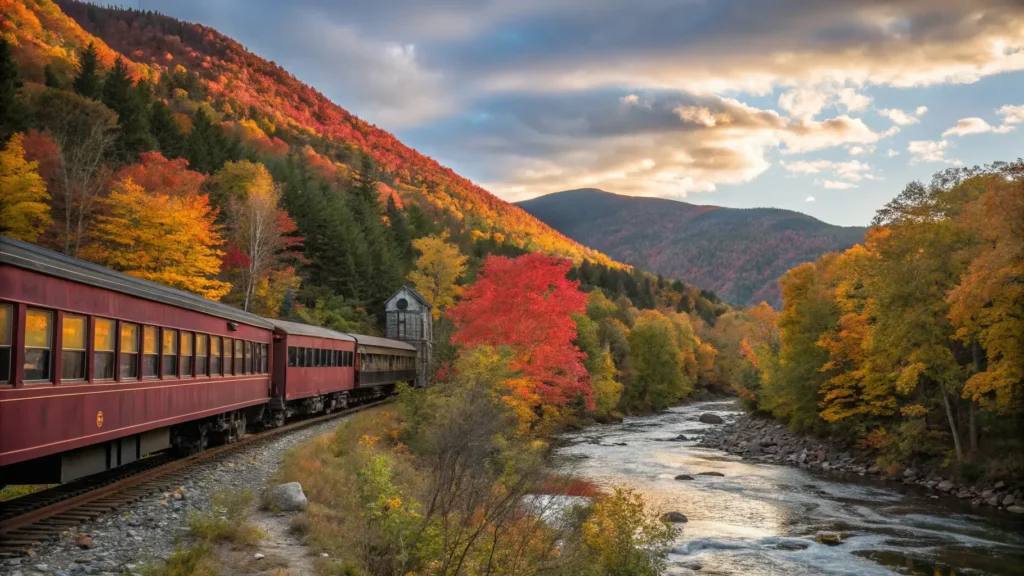Ever wondered where ancient geological marvels meet untamed wilderness? Welcome to Garden of the Gods in Southern Illinois, a hidden gem that’ll make your inner adventurer weak at the knees.
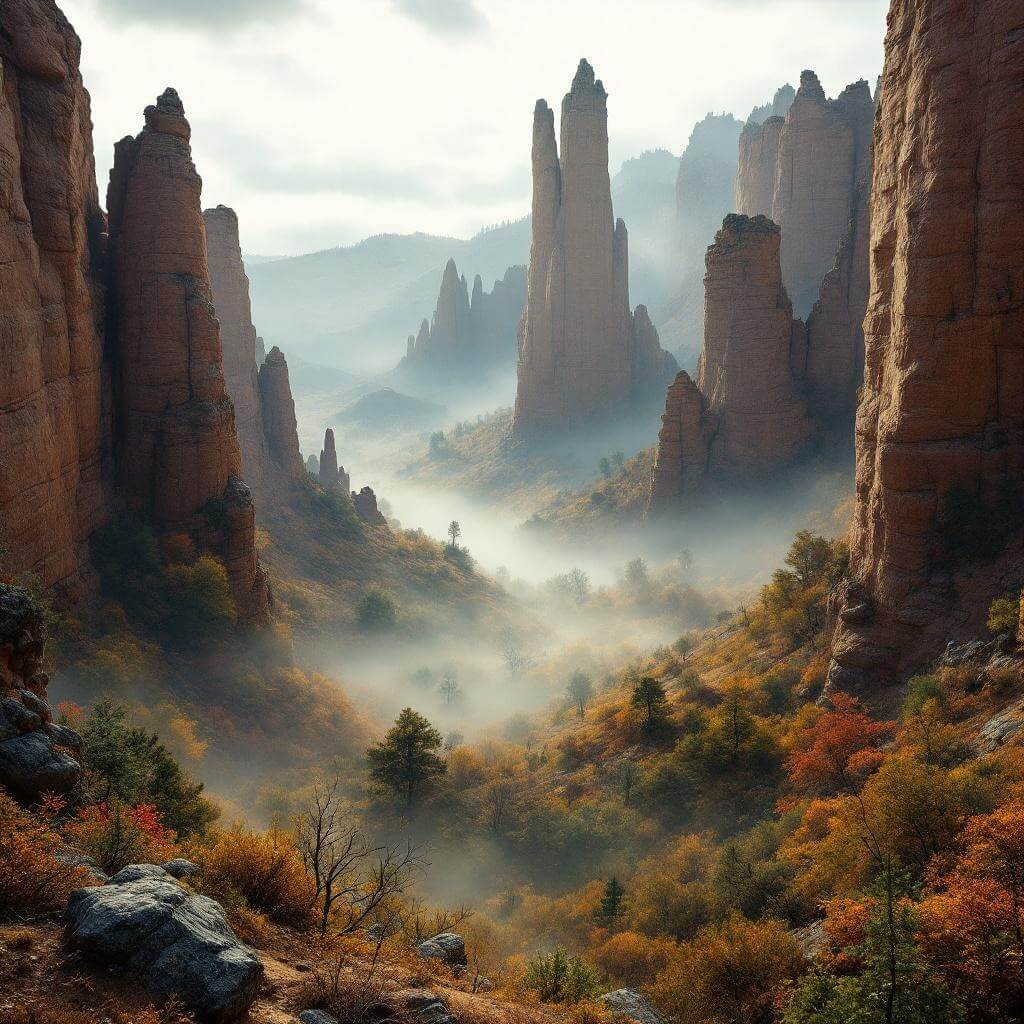
My First Encounter with Sandstone Magic
I’ll never forget my first trek through these remarkable formations. It was a crisp autumn morning, mist hanging delicately between towering sandstone pillars, when I realized this wasn’t just another hiking trail – this was a portal into Earth’s prehistoric memory.
The Geological Time Capsule You Can Actually Walk Through
Garden of the Gods isn’t just a location; it’s a 320-million-year-old geological masterpiece nestled within Shawnee National Forest. Spanning 3,318 acres across Hardin, Pope, Saline, and Gallatin counties, this wilderness area is a testament to nature’s sculptural genius.
Why This Place Is a Natural Wonder Magnet
Quick Stats That’ll Impress Your Friends:
- Most visited destination in Shawnee National Forest
- Home to dramatic sandstone formations
- Attracts hikers, photographers, and geology nerds alike
The Birth of a Geological Masterpiece
Imagine ancient inland seas depositing layers upon layers of sediment. Over millions of years, these deposits transformed into sandstone formations reaching an incredible 20,000 feet deep. Tectonic events and relentless erosion carved out the landscape we see today – a process that sounds boring but looks absolutely breathtaking.
Landscape Features That’ll Make Your Jaw Drop
The area boasts:
- Steep cliffs that seem to defy gravity
- Unique erosional formations called hoodoos
- Second-growth forests packed with juniper and cedar
- Panoramic views that stretch across Shawnee National Forest
Rock Formations That Tell a Story
Some rock formations here are so distinctive, they’ve earned their own nicknames:
Camel Rock: The park’s Instagram-worthy superstar
- Looks exactly like a camel’s silhouette
- Best photographed during sunrise or sunset
- Located at the end of the Observation Trail
Devil’s Smokestack:
A 30-foot sandstone pillar standing proudly apart from surrounding cliffs, formed by the patient hand of differential erosion.
Buzzards Point:
More than just a cool name – it offers breathtaking forest canopy views and is a prime spot for raptor watching.
A Playground for Nature Lovers and Adventure Seekers
The Observation Trail offers a perfect introduction:
- Quarter-mile loop with interpretive signs
- Easy to moderate difficulty
- Suitable for families and first-time visitors
- Comes with built-in safety features like steps and benches
Pro tip: Wear sturdy shoes and keep an eye on children near cliff edges. This isn’t a place for casual wandering.
Conservation: Protecting a Prehistoric Treasure
This isn’t just a tourist spot – it’s a carefully managed ecosystem. The U.S. Forest Service employs Leave No Trace principles, ensuring these formations remain pristine for future generations.
The region’s unique status as an unglaciated area means it’s preserved geological features that glaciers elsewhere would have destroyed. Talk about a natural time machine.
As the morning light started painting the sandstone in golden hues during my first visit, I realized Garden of the Gods isn’t just a location. It’s a living, breathing narrative of our planet’s incredible history.
Want to know the best times to visit, photography tips, and local dining recommendations? Stick around, because this geological journey is just getting started.
When to Visit: Timing is Everything
Ever tried hiking when the sun’s beating down like a hammer? Not fun. Garden of the Gods demands strategic planning.
Best Seasons Breakdown:
- Spring: Wildflowers exploding in technicolor
- Fall: Foliage transforms landscape into a painterly masterpiece
- Avoid summer midday heat – unless you enjoy feeling like human jerky
For more seasonal insights, check out the Complete Guide to Garden of the Gods in Shawnee National Forest.
Pro Photography Secrets
Want images that’ll make National Geographic jealous? Listen up.
Gear and Technique Recommendations:
- Wide-angle lens captures massive rock formations
- Early morning/late afternoon light creates dramatic shadows
- Tripod essential for capturing intricate rock textures
- Drone footage possible, but check Forest Service regulations first
Don’t forget to Explore Illinois’ Most Spectacular Natural Rock Formations for more visual inspiration.
Wildlife and Unexpected Encounters
One summer morning, tracking alongside the River to River Trail, I stumbled upon a red-tailed hawk perched magnificently atop Anvil Rock. These moments? Pure magic.
Wildlife Hotspots:
- Buzzards Point: Raptor central
- Forest edges: White-tailed deer territory
- Creek crossings: Potential beaver and raccoon sightings
Local Dining and Creature Comforts
Hunger strikes after epic hiking? The Red Onion in nearby Equality, IL serves hearty post-adventure meals that’ll restore your trail-worn spirit.
Nearby Attractions:
- Pounds Hollow Lake: Swimming and additional hiking
- Local restaurants with genuine Midwestern hospitality
- Camping facilities for overnight adventurers
Safety: Because Nature Respects No Foolishness
Sandstone can be treacherous. Wet rocks + gravity = potential disaster.
Critical Safety Tips:
- Wear ankle-supporting hiking boots
- Bring more water than you think necessary
- Download offline trail maps
- Minimal cell service – be prepared
- Watch children near cliff edges
Conservation: Your Role Matters
Every footstep impacts this delicate ecosystem. Practice Leave No Trace principles religiously.
Visitor Responsibility Checklist:
- Pack out ALL trash
- Stay on marked trails
- Respect wildlife boundaries
- Share knowledge with fellow hikers
The Bigger Picture: Why This Matters
Garden of the Gods isn’t just a destination. It’s a living museum of geological processes, a sanctuary of biodiversity, and a testament to nature’s patient artistry.
Final Thoughts:
- This isn’t just a hiking spot – it’s a connection to prehistoric Earth
- Every rock tells a 320-million-year-old story
- Your visit contributes to ongoing conservation efforts
As the sun sets over those magnificent sandstone formations, casting long shadows across ancient landscapes, one truth becomes crystal clear: Garden of the Gods, Illinois, is more than a location. It’s an experience that transforms how we see our planet.
Ready to write your own geological adventure? The trails are waiting.
For a complete adventure itinerary, visit the Complete Guide to Garden of the Gods in Shawnee National Forest.

